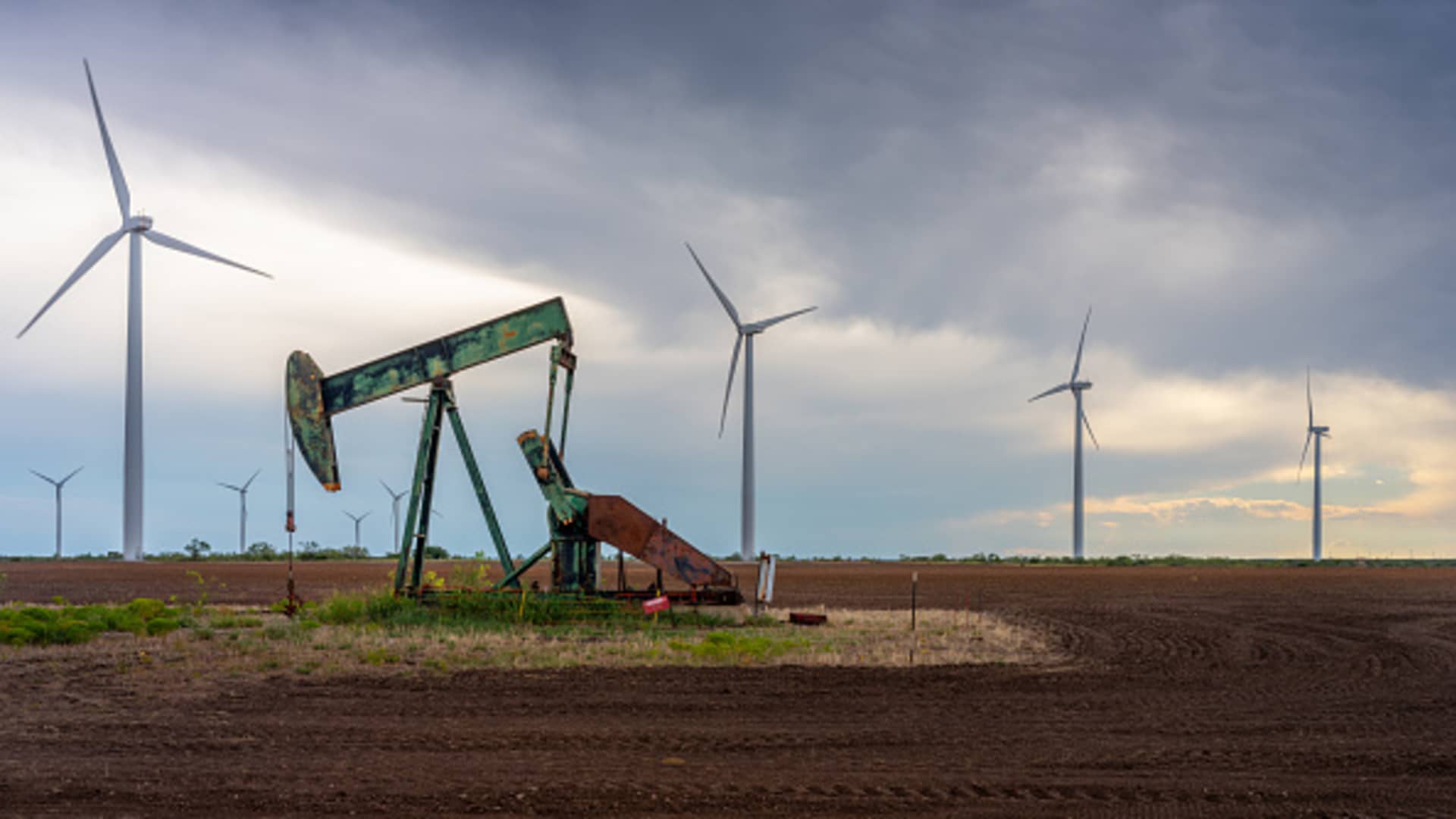An oil pumpjack is seen near a field of wind turbines on October 04, 2023 in Nolan, Texas.
Brandon Bell | Getty Images
OPEC on Monday raised its medium- and long-term forecasts for global oil demand.
The oil producer group said the crude sector would require a whopping $14 trillion in investment if it is to meet this upswing, even amid a rapid expansion of renewable energy technologies.
OPEC’s long-term forecast for global oil demand diverges from that of the International Energy Agency, the world’s leading energy watchdog. OPEC and the IEA, both big names in the energy industry, are currently locked in a war of words over peak oil demand.
In its 2023 World Oil Outlook, OPEC said it expects global demand to reach 116 million barrels per day (bpd) by 2045, up from 99.6 million bpd in 2022 and roughly 6 million more bpd than it predicted in last year’s report.
OPEC made clear that there’s potential for this jump to be even higher, too. The growth is likely to be fueled by India, China, other Asian countries, Africa, and the Middle East.
For its long-term oil demand forecast to be met, OPEC said oil sector investments of $14 trillion, or around $610 billion on average per year, would be needed. The group said it is “vital” that these investments are delivered, saying it is beneficial to both producers and consumers.
In the medium term, OPEC said global oil demand was likely to reach a level of 110.2 million bpd in 2028, reflecting a jump of 10.6 million bpd when compared to 2022 levels.
“Recent developments have led the OPEC team to reassess just what each energy can deliver, with a focus on pragmatic and realistic options and solutions,” OPEC Secretary General Haitham al-Ghais said in a foreword to the report.
“Calls to stop investments in new oil projects are misguided and could lead to energy and economic chaos,” al-Ghais said. “History is replete with numerous examples of turmoil that should serve as a warning for what occurs when policymakers fail to acknowledge energy’s interwoven complexities.”
Beginning of the end?
OPEC’s forecasts contrast starkly with those of the IEA, which said last month that the world was now at the “beginning of the end” of the fossil fuel era.
In an op-ed published in the Financial Times, IEA Executive Director Fatih Birol said for the first time that demand for coal, oil and gas would all peak before 2030, with fossil fuel consumption then predicted to fall as climate policies take effect.
Birol’s assessment is based on the IEA’s World Energy Outlook, an influential report which is due out in October.
The IEA chief hailed the forecast as a “historic turning point” but made clear that the projected declines would be “nowhere near enough” to put the world on a path to limiting global warming to 1.5 degrees Celsius above pre-industrial levels.
This temperature threshold is widely regarded as critical to avoiding the worst impacts of climate change. The burning of fossil fuels is the chief driver of the climate crisis.

